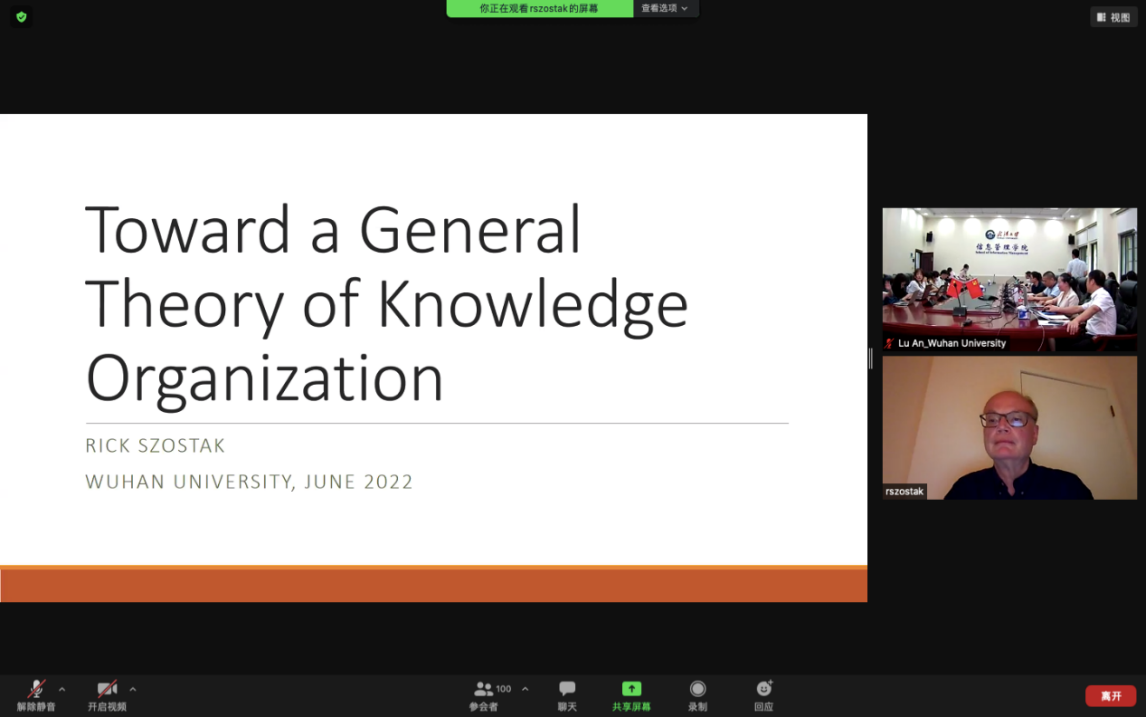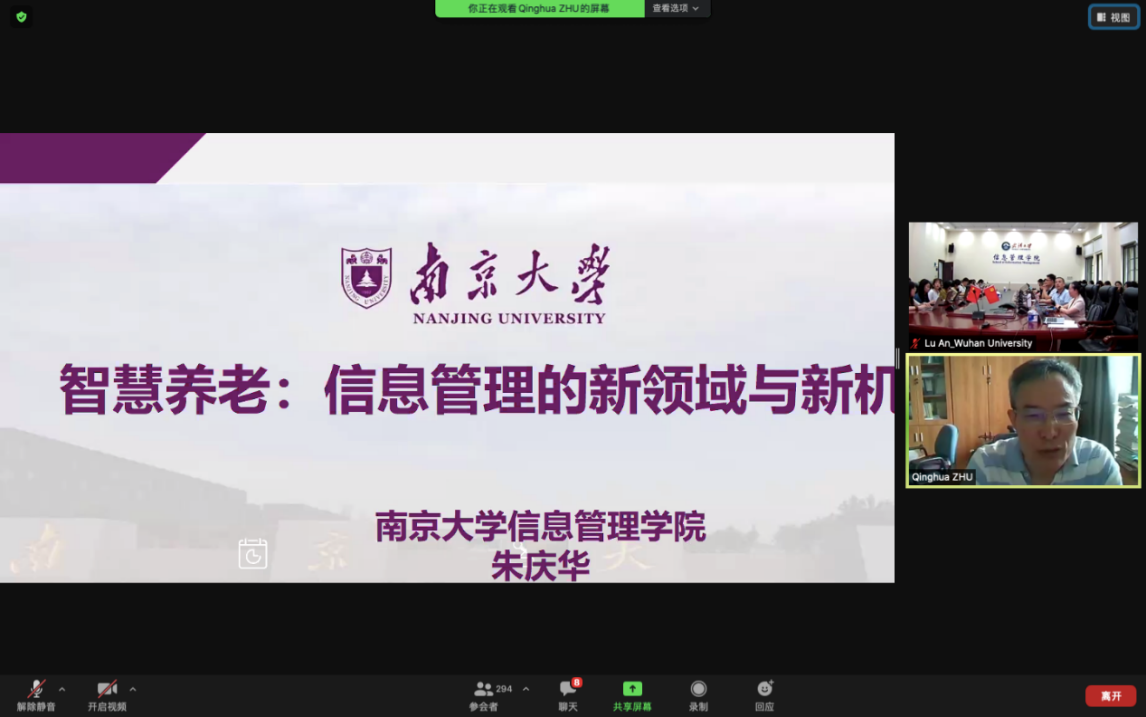On the morning of June 9, 2022, the third lecture of the series of activities of "Luojia SIM+" was held in a combination of virtual and reality meeting.
The three professors gave academic reports respectively are as follows:
Rick Szostak, Professor, Chairman of the International Society for Knowledge Organization (ISKO),
Qinghua Zhu, Professor, Associate Dean of the School of Information Management, Nanjing University,
Yuelin Li, Professor, Director of International Cooperation and Exchange Department, NanKai University.
More than 300 teachers and students attended the meeting. Wei Lu, Dean of the SIM, Wuhan University, gave a welcome speech. Professor Lu An, Professor Quan Lu and Professor Yiming Zhao acted as hosts.
With the title ofToward a General Theory of Knowledge Organization, Rick Szostak expounded his research achievements and academic views on Basic Concepts Classification for many years. He emphasized that the problems in reality are always interdisciplinary, and knowledge organizations should guide various human groups to find various information they need. Based on this objective, he believes that the definition of basic concepts should seek a broad consensus rather than an absolutely accurate philosophical definition. Split complex concepts into basic concepts with consensus, so as to help researchers across fields understand them. In order to facilitate the analysis and synthesis of concepts, facet analysis is used for classification. He proposed that in the practice of classification theory, we should comprehensively present various understandings of concepts based on the ontological understanding of the world; It should be classified according to phenomena, relationships and attributes rather than discipline systems; Combining knowledge organization with the latest information retrieval technology, this classification method is applied to the information organization of semantic internet. Rick Szostak also answered questions such as whether natural language can be used to deal with the rationalism of technical classification and facet classification.

Qinghua Zhu gave a report entitledIntelligent Care Service for the Aged: New Fields and New Opportunities in Information Management. Qinghua Zhu shared it from four aspects: rising background, concept and connotation, research field and the research progress of his team. Since China entered the aging society in 2000, the degree of aging has intensified year by year, and the growth rate of the aging population far exceeds the general population increase. With the extension of life expectancy, the traditional care service for the aged model is under pressure, and solving the problem of population aging has become an important task of our government. In this regard, Qinghua Zhu pointed out that scientific and technological progress is a powerful lever to promote social and economic development, science and technology are the primary productive forces, and relying on science and technology to support the elderly is an important way to cope with the aging of the population. Later, Qinghua Zhu explained the connotation of “intelligent care service for the aged” and its related concepts, and put forward the understanding way of “intelligent + care service for the aged”, pointing out that the core of intelligent care service for the aged is digitalization, the support is networking, the means is intelligence. He introduced some intelligent wearable devices and intelligent care service for the elderly, and pointed out that China's old-age industry has not yet taken shape and needs to be developed and improved. Then, Qinghua Zhu analyzed the new fields and new opportunities brought by intelligent care service for the aged for the discipline of Information Management, summarized the research status of intelligent care service for the aged in China, summed up the top ten research hotspots, and put forward research topics involving four dimensions: people, technology, information and society. Finally, Qinghua Zhu shared a series of research results of his team in this field in recent years. In the interactive session, Qinghua Zhu answered questions such as how to raise the research on intelligent care service for the aged to the level of "intelligent" in the field ofInformationManagement.

The theme of Yuelin Li's reportwasThe Research Methods I Have Used in the Past 30 Years. Taking her past research as cases, she explained her commonly used experimental research methods, in-depth interviews and content analysis methods, and explained the development forms, characteristics, difficulties and application of the above methods. According to her own practical experience, Yuelin Li analyzed common practical problems of different research methods, so as to facilitate audiences to better use these research methods in the future. Yuelin Li showed new methods in the field of Information Management, such as big data correlation method, causal inference, qualitative comparative analysis, fuzzy set qualitative comparative analysis, etc. Finally, Yuelin Li pointed out that in the research, attention should be paid to the matching between research questions and methods, the validity and reliability of research methods, and so on.

This activity aroused the attention and thinking of teachers and students of knowledge organization, intelligent care service for the aged, and information behavior, deepened their understanding of research methods and tools in the field of Information Management, and achieved deep academic exchange.